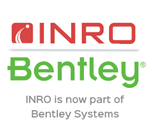Developing the Clean Transport Strategy that Australia deserves
Dr Jake Whitehead
University of Queensland
This presentation was delivered at the 2021 Online Conference Series and until October 2022 is only available to registered delegates and Content Access Pass holders via Interchange. For information on accessing this and other presentations please review the Content Access Pass options.
ABSTRACT
Rapid decarbonisation of transport systems globally is critical to achieving net zero emissions by 2050. Australia is well placed to be a major beneficiary of this transition, both in terms of the supply of raw materials, as well as advanced manufacturing and lower transport energy costs. Unfortunately, to date, as a country we have not fully appreciated the extent of this opportunity, nor have we introduced the policy frameworks required to enable and support the switch to low and zero emission transport options. During this presentation, Jake will discuss international trends in the strategic application of different low and zero emission technologies across the transport sector (electric vehicles, hydrogen, synthetic fuels, and biofuels) to align with net zero by 2050, and the work being carried out by FACTS to support the decarbonisation of Australia’s transport system.
Author
Dr Jake Whitehead | University of Queensland
Dr Jake Whitehead | Tritium E-Mobility Fellow, Advance Queensland Industry Research Fellow & E-Mobility Research Lead, Dow Centre for Sustainable Engineering Innovation, The University of Queensland.
With experience working across industry, academia and government both in Australia and internationally, Dr Whitehead holds a deep understanding of the significant challenges our current transport and energy systems face, as well as some of the potential difficulties inherent with the uptake of new technologies in these sectors. With his particular expertise in sustainable transport and electro-mobility (E-Mobility), Dr Whitehead’s work supports the development of innovative and socially-responsible policies that can assist in overcoming these potential challenges, and in doing so, help to achieve improved transport and energy systems. Through his roles with international bodies, including the IPCC and International Electric Vehicle Policy Council, he is passionate about enabling the decarbonisation of transport systems globally, and leveraging this necessary transition to deliver environmental, social and economic benefits to households and businesses.







